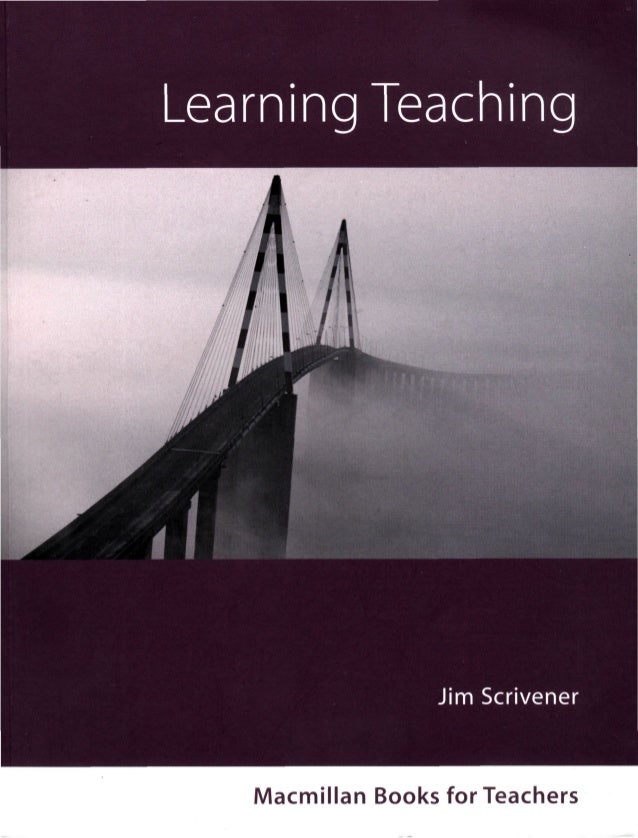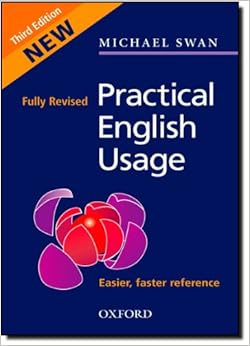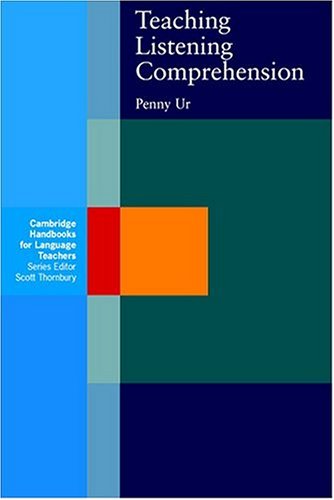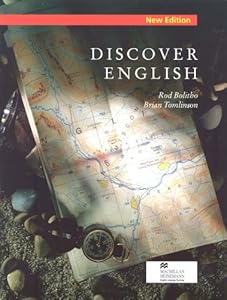Fifty Strategies for Teaching English Language Learners, by Adrienne Herrell and Michael Jordan, includes a rich assortment of practical strategies aligned to TESOL standards which have been field-tested in diverse classrooms. Each strategy includes a brief explanation, step-by-step instructions on how to plan and use the strategy, and two classroom scenarios demonstrating how the strategy can be adapted for different grade levels and content areas. Herrell and Jordan have included additional language and literacy development strategies, technology strategies, and assessment strategies to support both pre-service and inservice teachers.
This website is dedicated to enhance our knowledge of the English language as ESL & EFL, promote the free sharing of documents, resources, materials, etc with a special focus on Mexico´s NEPBE or PNIEB, but at the same time, provide articles, material, resources that are of national and international interest.
Showing posts with label ICELT. Show all posts
Showing posts with label ICELT. Show all posts
Tuesday, November 18, 2014
Monday, November 17, 2014
The "How to teach" Series from Jeremy Harmer.
The How to series is written by teachers and teacher trainers, people who know the reality of the classroom and the support teachers need to get the most out of their students. The aim is to build teachers confidence, knowledge, and classroom abilities and inspire them to try out new ideas.
This collection of user-friendly development books will assist a broad range of teachers and trainers in expanding their classroom capabilities. Each text offers practical information within a clear theoretical framework. The series builds teachers' confidence, knowledge and classroom abilities -- and inspires them to try out new ideas.
The series includes:
How to Teach Writing by Jeremy Harmer
This book delivers an uncomplicated analysis of the nature of writing, particularly in terms of process, product, and genre. Descriptions of a broad range of writing tasks enable teachers to select those that will be most effective in developing students’ writing skills.
How to Teach Writing - 69 M
https://vk.com/doc222861790_336751558
-----------------------------------------------------------
How to Teach Grammar by Scott Thornbury
Here you’ll find a host of ways to develop or enhance your grammar teaching skills. How to Teach Grammar demonstrates methods for practicing a variety of grammar topics, dealing with errors, and integrating grammar instruction into general methodologies such as task-based learning.
How to Teach Grammar - 7 M
https://vk.com/doc222861790_336750273
-----------------------------------------------------------
How to Teach Vocabulary by Scott Thornbury
Finally...an introduction to teaching vocabulary that’s both accessible and content-rich. You’ll find details on the characteristics of words, how they are learned and memorized, and the best ways to teach them. Complex issues are presented in the context of the real-life challenges of today’s classrooms.
How to Teach Vocabulary - 9 M
https://vk.com/doc222861790_336751052
--------------------------------------------------------------
How to Teach Speaking by Scott Thornbury
This book examines the different approaches and activities that can be used for teaching and testing speaking. It covers areas of speech such as articulation, fluency and register, and looks at classroom approaches including discussions, drama, and drills. A task file and reading list is included.
How to Teach Speaking - 71 M
https://vk.com/doc222861790_336750976
------------------------------------------------------------
How to Teach Pronunciation by Gerald Kelly
A straightforward primer on the theory and teaching of pronunciation, this text offers detailed analysis and teaching techniques for vowels, consonants, stress and intonation, and the features of fluent speech. An enclosed Audio CD provides spoken examples of the material in the text.
How to Teach Pronunciation 13 + 22 M
Book
https://vk.com/doc222861790_336750368
Audio CD
https://vk.com/doc208922441_322833503
-----------------------------------------------------------
How to Teach for Exams by Sally Burgess and Katie Head
This text offers a thorough analysis of how listening, speaking, reading and writing, as well as grammar and vocabulary, are tested in a range of exams, along with appropriate teaching strategies for each. Also includes a guide to all major international English language exams.
How to Teach for Exams - 24 M
https://vk.com/doc222861790_336750206
This book delivers an uncomplicated analysis of the nature of writing, particularly in terms of process, product, and genre. Descriptions of a broad range of writing tasks enable teachers to select those that will be most effective in developing students’ writing skills.
How to Teach Writing - 69 M
https://vk.com/doc222861790_336751558
-----------------------------------------------------------
How to Teach Grammar by Scott Thornbury
Here you’ll find a host of ways to develop or enhance your grammar teaching skills. How to Teach Grammar demonstrates methods for practicing a variety of grammar topics, dealing with errors, and integrating grammar instruction into general methodologies such as task-based learning.
How to Teach Grammar - 7 M
https://vk.com/doc222861790_336750273
-----------------------------------------------------------
How to Teach Vocabulary by Scott Thornbury
Finally...an introduction to teaching vocabulary that’s both accessible and content-rich. You’ll find details on the characteristics of words, how they are learned and memorized, and the best ways to teach them. Complex issues are presented in the context of the real-life challenges of today’s classrooms.
How to Teach Vocabulary - 9 M
https://vk.com/doc222861790_336751052
--------------------------------------------------------------
How to Teach Speaking by Scott Thornbury
This book examines the different approaches and activities that can be used for teaching and testing speaking. It covers areas of speech such as articulation, fluency and register, and looks at classroom approaches including discussions, drama, and drills. A task file and reading list is included.
How to Teach Speaking - 71 M
https://vk.com/doc222861790_336750976
------------------------------------------------------------
How to Teach Pronunciation by Gerald Kelly
A straightforward primer on the theory and teaching of pronunciation, this text offers detailed analysis and teaching techniques for vowels, consonants, stress and intonation, and the features of fluent speech. An enclosed Audio CD provides spoken examples of the material in the text.
How to Teach Pronunciation 13 + 22 M
Book
https://vk.com/doc222861790_336750368
Audio CD
https://vk.com/doc208922441_322833503
-----------------------------------------------------------
How to Teach for Exams by Sally Burgess and Katie Head
This text offers a thorough analysis of how listening, speaking, reading and writing, as well as grammar and vocabulary, are tested in a range of exams, along with appropriate teaching strategies for each. Also includes a guide to all major international English language exams.
How to Teach for Exams - 24 M
https://vk.com/doc222861790_336750206
-------------------------------------------------------------------------
How to Teach English, New Edition by Jeremy Harmer
This essential introduction to the theory and practice of teaching English illustrates a variety of methods, based on the author’s extensive teaching and training experience. Ideas on lesson planning and textbook use can be put into practice immediately.
How to Teach English - 21 M
https://vk.com/doc222861790_336750005
How to Teach English - Second Edition - 8 M
https://vk.com/doc243798239_315335328
How to Teach English, New Edition by Jeremy Harmer
This essential introduction to the theory and practice of teaching English illustrates a variety of methods, based on the author’s extensive teaching and training experience. Ideas on lesson planning and textbook use can be put into practice immediately.
How to Teach English - 21 M
https://vk.com/doc222861790_336750005
How to Teach English - Second Edition - 8 M
https://vk.com/doc243798239_315335328
Sunday, September 28, 2014
10 Essential books for Teaching English
1. The one book you absolutely need to get started:

How to Teach English
 by Jeremy Harmer
by Jeremy HarmerThis is the one: if you do no other reading before embarking, make sure you read this. This book is simply the complete manual of teaching English as a foreign language.
If you’re a native English speaker who’s worried about coming to terms with the grammar of the language this book will be a life saver, as it takes a practical approach, concentrating on examples of teaching and teaching practice rather than on detailed analysis of learning theory. Don’t start without this!

Learning Teaching
 by Jim Scrivener
by Jim ScrivenerThis is the other one! Together with Jeremy Harmer’s book, Learning Teaching is the essential guide for your first years as a language teacher and will remain an invaluable resource for your continuing career.
Again, the really practical approach makes it a perfect introduction to teaching English as a foreign or second language.
3. The book to stop panicking about not knowing English grammar:

Grammar for English Language Teachers
 by Martin Parrott
by Martin ParrottLet’s face it… we need to talk about grammar! The beauty of Grammar for English Language Teachers is that it is designed to help trainee teachers develop their knowledge of English grammar systems.
It encourages teachers to appreciate factors that affect grammatical choices, as well as evaluating the kinds of ‘rules of thumb‘ that you’ll see presented to learners in course materials. The consolidation exercises provide an opportunity for you to test these rules against real language use and to evaluate classroom and reference materials. If you’re stressed by the prospect of having to teach grammar, buy this book!
4. The go-to-guide for all things Grammar:

Practical English Usage
 by Michael Swan
by Michael SwanOne thing I can guarantee you is that you will be asked questions about grammar that you can’t immediately answer… a state of being that will probably continue for many years! That’s where Practical English Usage comes to the rescue!
This classic reference guide succinctly – and comprehensively – addresses all of the problem points in the English language as encountered by learners and us as teachers. It gives information and advice that is practical, clear, reliable, and easy to find. Don’t leave home without it.
5. The reference guide to teacher training courses;
A Course in English Language Teaching
 by Penny Ur
by Penny UrWhat do you need to know about language teaching and what will you encounter? If you want a text that will act as an easy to read and easy going book reference guide discussing the various methods of teaching English, this is the book for you.
While this is ideal for your initial teacher training, it will remain a useful reference for when you become a fully-fledged teacher. The book combines theory and practice, with each unit containing tasks that encourage reflection and discussion, plus action tasks such as classroom observation and practice
6. The orientation:
The CELTA Course Trainee Book
 by Scott Thornbury and Peter Watkins
by Scott Thornbury and Peter WatkinsWhile the purpose of this post is primarily to list the books you should be reading before undertaking teaching, I hope the message is also coming through that you should get cracking in advance and not wait until you’ve started!
The course itself may probably represent the most difficult month of your life, so reading this title – which wasn’t available when I did my course, unfortunately – will enable you to orient yourself in advance and know exactly what to expect when you get started. A word of caution: reading this won’t enable you to take the course easily; you’ll still have a huge mountain to climb.
7. The comprehensive introduction to how to teach listening:
Teaching Listening Comprehension
 by Penny Ur
by Penny UrListening isn’t something you’ll necessarily have given much thought in your non-language teacher phase of life… so be prepared for a bit of a shock when you have to teach listening in the classroom.
Luckily, the wonderful Penny Ur is here to help us with this fantastic text in which she defines the characteristics of real-life listening, analyses the problems encountered by language learners, and discusses the considerations involved in planning successful classroom listening practice. The book also contains loads of example tasks to give you plenty of ideas about how to deal with listening in class.
8. The comprehensive introduction to how to teach reading:
Developing Reading Skills: A Practical Guide to Reading Comprehension Exercises
 by Francoise Grellet
by Francoise GrelletReading isn’t something… aagghh, just see the above paragraph and replace the word ‘listening’ with ‘reading’! Developing Reading Skills is the kind of book that you’ll want to keep close at hand whenever you’re planning a reading lesson.
This is a comprehensive reference handbook offers a wide range of sample reading comprehension exercises which will enable you to incorporate meaningful reading into your lessons. I was using this book years after my certificate course when I did the DELTA and still refer to it on a fairly regular basis.
9. The ‘slow burner’:
Discover English
 by Rod Bolitho
by Rod BolithoGet your thinking caps on and be ready to be in this for the long haul. This is one of the first books I bought and it took a while for its usefulness to sink in.
Not the immediate go-to-guide that you’ll get with most of the titles I’ve mentioned here, Discover English operates as a language-awareness workbook which highlights and explores selected areas of grammar and vocabulary. The exercises are designed to confront myths and preconceived ideas, and to explore common areas of difficulty, while commentaries offer support to all users, especially English teachers. Think of this as a course for you to take to learn about the language :trust me, you’ll almost certainly need it!
10. What’s your number 10?
I’ve noticed that these lists tend to work best when I leave the final choice open to you.. so here you go! There have been some great suggestions so far.
10.1 Grammar Practice Activities
 by Penny Ur
by Penny UrDavid Harbinson recommends this title:
"I think it is especially good for new teachers who have no real idea about English grammar because it contains a lot of great activities that will help the teacher to discover the grammar along with the students."
10.2 Clear Speech: Pronunciation and Listening Comprehension in North American English
 by Judy Gilbert
by Judy GilbertClaudie Graner has this suggestion:
"Understanding the ‘content’ of pronunciation was the most difficult issue I faced as a beginner teacher. Grammar and methodology were familiar (I had learned grammar and been taught by progressive teachers!) but pronunciation was tabula rasa… this gave me somewhere to start."
10.3 Sound Foundations: English Pronunciation (Methodology)
 by Adrian Underhill
by Adrian UnderhillSinead Laffan has this to say:
"Gimme, gimme, gimme! [Agreed... this would have been my 'natural' number 10 if I hadn't left it open to you all]"
10.4 Vocabulary in Language Teaching
 by Norbert Schmitt and Vocabulary Myths: Applying Second Language Research to Classroom Teaching
by Norbert Schmitt and Vocabulary Myths: Applying Second Language Research to Classroom Teaching by Keith Folse
by Keith FolseGordz O’Doberman explains his choices:
"For me, trainee, novice and experienced teachers all need to be aware of the primacy of lexis in language learning (and teaching)."
Good reads everyone!
Subscribe to:
Posts (Atom)






